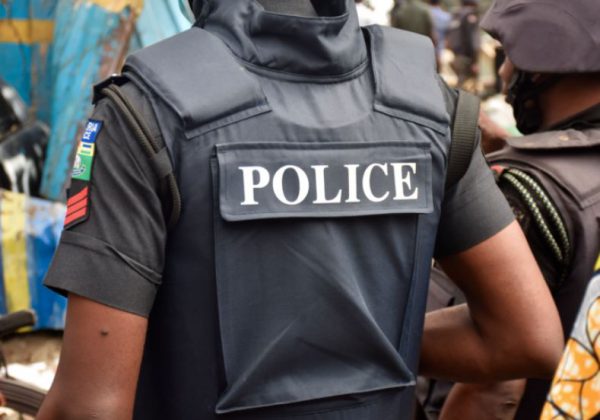For too long, Nigerians have pointed out the shortcomings associated with the Nigeria Police Force (NPF) and its sister agencies’ handling of suspected criminals.
One of the practices that has attracted wider condemnation is the parade of suspects before the public with all possible media tools deployed in a very dehumanising and disgusting manner.
In most of such parades also referred to as “media trial”, the suspects, who are usually the poor that could not oil the palms of investigating officers, are brought before the media in chains and handcuffs.
Sometimes, they are chained together on their legs, half-naked, looking feeble and unkept because they have been subjected to very harrowing treatment just to extract “useful” information.
The worst culprits of this debasing and degrading practice are the police and the Nigeria Security and Civil Defence Corps (NSCDC).
These maltreatment by security agencies during investigation to extract statements from suspects have been challenged in courts and favourable judgements delivered, but the police never deemed it fit to obey the verdicts.
It is on record that concerned Nigerians, who challenged the practice before the Federal High Court and ECOWAS Court won their cases five times, but the police were defiant.
It is against this backdrop that we as a newspaper applauds the Attorney-General of the Federation (AGF’s) recent ban on the police and other security agencies from parading suspects before their trial.
It is a bold step towards recognising the human rights and dignity of suspects.
It is also heartwarming that unlike the past, the police authorities, especially, are complying with the AGF”s order.
Critics of the parade of suspects by the police in particular, before the public prior to being arraigned have described it as an aberration and unconstitutional. They argued that it was a total violation of the doctrine of presumption of innocence until found guilty as contained in the Nigerian constitution.
Section 36(5) and (6) of the 1999 Constitution (as amended) states that an accused person shall be presumed innocent until the contrary is proved.
There is no where the constitution empowers the police or any other law enforcement agency to debase and humiliate suspects publicly before being prosecuted.
The only occasion allowed by law for the security agencies to parade a suspect is for the identification of the suspect by a witness who may claim seeing the suspect committing the crime in question.
Under such circumstances known as identification parade, the suspect is presented among other people who may not necessarily be criminals or connected to the crime for the witness to point him out from the crowd.
Even at that, the parade is not done before the press. The Police resort to this approach is to prove to Nigerians and those who foot their bills that they are winning the war against crime.
It is equally a publicity blitz and image laundering show without considering the damage it causes the victims. Even though the action of the AGF may be considered belated, it is a good start.
With the ban on suspects’ parade, the harm the security agencies have done to thousands of suspects who may later be found to be innocent and others who had languished and are still languishing in prisons for offences they never committed, will be contained.
Some paraded suspects, who later regained freedom and were given clean bill, have suffered rejection by families, friends and associates. Some have not been reintegrated into the society and continue to suffer stigmatization. Others have lost their jobs and businesses as their employers and business partners never trusted them again.
Families have been broken with the children of such suspects branded siblings of criminals. In schools, they are ostracised. The losses and damage suffered by the suspects are incalculable.
These are some of the evils this government laudable action will address with proper and effective enforcement.
Therefore, the federal government should go beyond mere pronouncement by setting up a machinery to monitor compliance by the affected agencies and where there are breaches, appropriate sanctions applied promptly.
This will protect the rights and dignity of individuals linked with crime until they are convicted.
The government’s action will also address negative consequences such as prejudice, public ridicule, and emotional trauma suffered by the suspects and their family members.
It will also remove the doubts on the integrity of the security agencies’ investigation and the fairness of the trial process.
Furthermore, to make the ban more effective, we advise the government to ensure that all the security agencies are aware of and comply with the AGF ‘s directive.
And when there is any need for suspects to be paraded, the government should come up with clear guidelines and protocols that respect their fundamental human rights.
The Police High Command and the authorities of related agencies should proceed with dispatch to train and educate their personnel on the importance of upholding the rights and dignity of suspects.
We argue that this practice of parading suspects is not only morally reprehensible but also ineffective in securing reliable information. It can lead to false confession, miscarriage of justice, and long-term physical and psychological harm to the victims.





